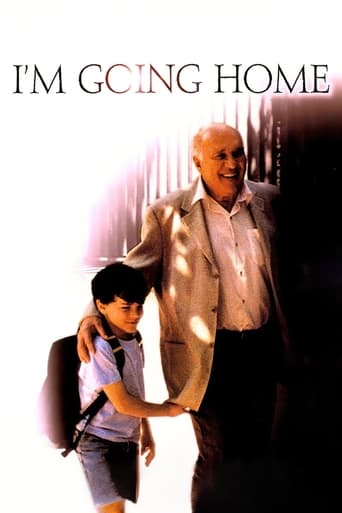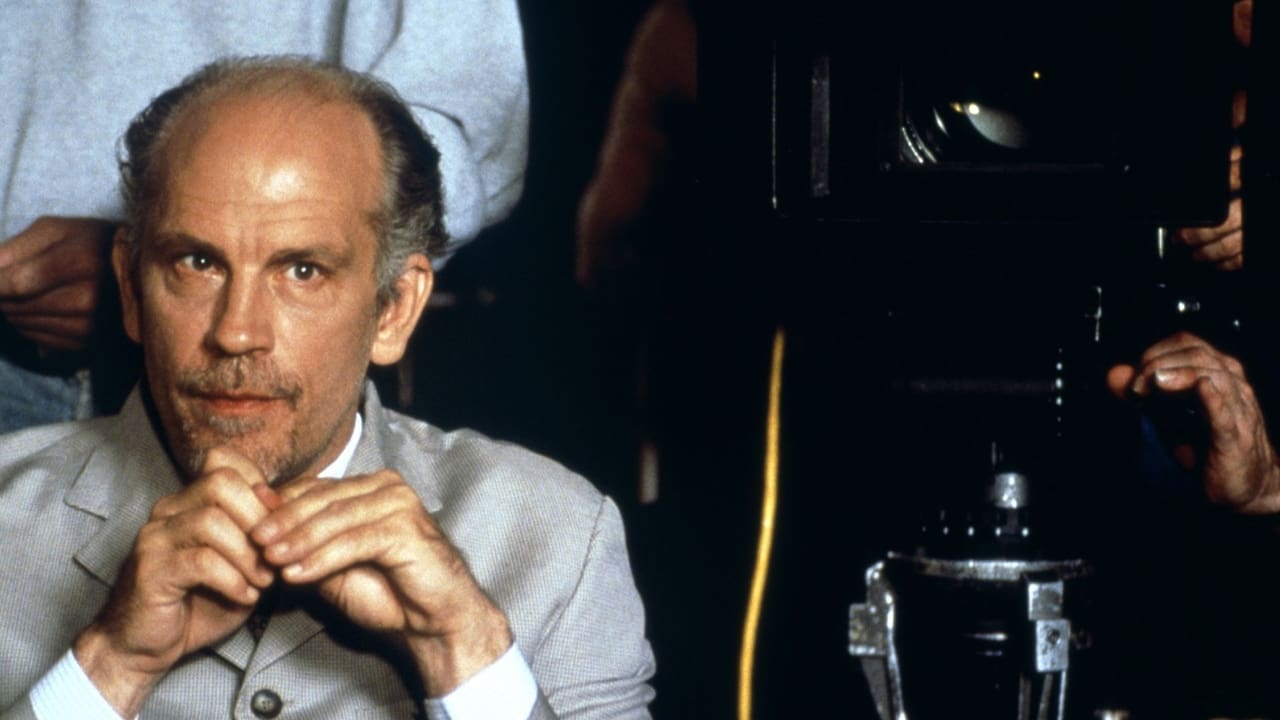MARIO GAUCI
This is another low-key yet compelling latter-day offering from the indefatigable Portuguese film-maker; given that it deals with a famous but ageing actor (Michel Piccoli once again) who decides to give up his boots, it was probably meant as such by Oliveira himself though he's still going strong seven years later, having not only made some half-a-dozen other films in the interim but, at nearly 100, has two more productions already lined up for 2009! The plot starts off with Piccoli and his theater troupe (including a nice cameo by Catherine Deneuve) performing a Eugene Ionesco play about a mad king (with Piccoli being very funny at playing a doddering and dreamy fool), while later on they also put on Shakespeare's "The Tempest". Soon after the initial performance, however, Piccoli learns that his wife, daughter and son-in-law have all been killed in a traffic accident; this is a wonderfully directed sequence as the people who have come to inform Piccoli of the tragic events are forced to wait for the play to finish before intervening and, consequently, are seen pacing nervously backstage as the actors' voices boom in the distance spouting droll lines concerning the impending death of Piccoli's own character. As a result of the accident, the elderly actor is left with a young grandson solely in his care; though the two can't afford to spend a lot of time together due to the nature of Piccoli's work and the boy's own schooling they display genuine affection for each other.The repetition of certain scenes Piccoli watching the child leaving for school or going to a café (this, then, becomes a nice running gag involving another habitual client who likes to sit at the very same table as the protagonist) may be a nod to Luis Bunuel's THE EXTERMINATING ANGEL (1962), meant as a reflection on the way one's life tends to become a series of routine chores. Having mentioned the Spanish surrealist master, as in Oliveira's later direct homage to him BELLE TOUJOURS (2006), which I've just watched the film has several bits showing Piccoli just walking around town; these don't merely serve to give us scenic views of the city, but also to crystallize Piccoli's bemused character: however, we're not spared the ugliness either, illustrated by the incident where one night he's held-up by a junkie and deprived of his beloved newly-purchased yellow shoes (which, in the preceding sequence, ostensibly depicting a conversation between Piccoli and his over-eager agent, had themselves amusingly been the 'protagonists')! The second half of the picture involves the flow of TV and movie work which Piccoli's agent tries to set up for him: they immediately clash over an action-packed TV series (where the actor's asked to play a dupe for a much younger woman!), but does accept the proposal of a renowned American film director (John Malkovich, another past alumnus of Oliveria's) to take a small role in a new rendition of James Joyce's "Ulysses" for the record, I own Joseph Strick's 1967 film adaptation myself but have yet to check it out. Still, their collaboration (Malkovich had initially felt privileged in obtaining the services of such a distinguished actor) isn't a felicitous one: Piccoli has difficulty in both remembering and fluently delivering the heavy-going English prose, while Malkovich proves an exacting director insisting on a rigorous fidelity to Joyce's text. Tired of the whole set-up, Piccoli quits with the soft-spoken yet unequivocal interjection of "Je rentre a' la maison" (I'm going home), and staggers out onto the streets of Paris still 'in character' and period costume (baffling passers-by and the patrons at a pub no end); when Piccoli arrives at the house, he even ignores the grandson's presence in the yard and goes straight up to his room. Had this been Oliveira's last film, it would have been a wonderful tribute to the actor's profession and an insightful reflection on old age and approaching death but, as I said before, the ceaseless Portuguese director still had (indeed has) other aces up his sleeve
yespat
An old man, aging actor has personal losses early in the film. We don't really feel his pain as we are not introduced to them prior.This is how the film goes. The man walks around, has coffee, meets with his agent, briefly interacts with his grandson, reads the paper, buys some shoes, gets mugged, walks around some more. Oh, and he is rigid, not wanting to meet anyone new, not wanting to expand his professional horizons, argues with people who attempt to pull him out of his rut. He has difficulty even in his profession and leaves a job without notice and goes to bed. That's it. That's the film.Now if that seems enjoyable, go for it. Boring, Boring.
valadas
Manuel de Oliveira is the film director of the details. The camera is always very slow with him and much concentrated on visual details, immobile images and dialogues. Each one of these however, has its meaning sometimes poetic and contributes to introduce the spectator deeply into the atmosphere of the story. Remember for instance the scene when the old actor, after having bought and put on a pair of new yellow shoes that he liked very much, is talking to someone else at a café and while the dialogue goes on we almost never see his face since the camera focuses his feet all the time and the movements he makes with his shoes like an element of his personality. This is the story of an old actor at the end of his career still trying to work after the violent death of his wife, daughter and son-in-law in a road accident that left him in charge of his little grandson. Michel Piccoli does a great job in the role of the aging actor and we can feel all along the movie the feelings that take place in his mind on the one hand in his difficult relationship with his agent about what the latter tries to demand from him and on the other hand in his tender relationship with his grandson at home though they don't see much of each other due to to their divergent hours. A movie really worth to be seen.
DaTramp
Watching this film is like watching mud dry. Obviously I have a definite prejudice but its distinctly like "About Schmidt", another snorer in which absolutely nothing happens. I found it impossible to care about what happened with these characters other than to hope, as the film progressed, that they didn't linger in old age any longer than necessary. There were many extraneous scenes (the old actor walking, lingering on subsidiary characters in bars and coffee shops) as if these added in any way to advancing the plot or developing character. There appears to be an audience for films of this type but it is so far from important films about the challenges of advancing age like "Wild Strawberries", "Men With Guns" or "Ikiru", as to be a parody.


 AD
AD


